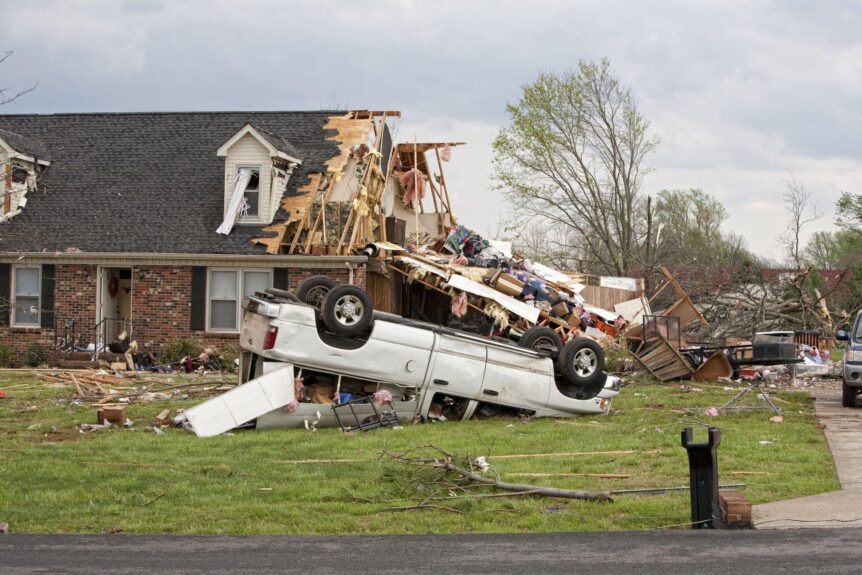When it comes to the state of Florida, the picturesque landscapes and sunny beaches often take center stage. However, amidst its natural beauty, Florida is also known for facing the wrath of hurricanes. These powerful storms can leave a trail of destruction in their wake, causing significant Florida hurricane damage to homes, infrastructure, and communities.
In this article, we will delve into the four most common types of hurricane damage that Floridians should be prepared for: wind damage, flooding, storm surge, and tornado damage.
4 Types of Florida Hurricane Damage to Protect Against
Wind Damage
Florida is no stranger to windy days, especially during the summer months when a cool breeze provides respite from the heat. However, when a hurricane strikes, the wind intensity reaches an entirely different level. These powerful hurricane winds can uproot trees and transform everyday objects into dangerous projectiles. Protecting against wind damage involves securing loose items, such as patio furniture or garden equipment, trimming trees, and installing impact-resistant windows and doors to protect your home. Taking these precautions can significantly reduce the risk of wind-related destruction to your property.
Flooding
One of the most significant threats accompanying hurricanes is flooding. Prolonged rainfall during these storms can lead to substantial water accumulation, causing damage to lower levels of buildings, vehicles, and natural landscapes. The record-breaking Hurricane Ian, for instance, unleashed its fury with maximum Category 5 status, featuring winds estimated at 161 mph (259 kph) on September 28. This resulted in devastating flooding, making it one of the most powerful hurricanes on record. To mitigate flood damage, elevate valuable items within your home, install waterproofing measures, and consider creating proper drainage systems to redirect excess water away from your property.
Storm Surge
The deadliest consequence of hurricanes is often the storm surge. When a hurricane makes landfall, the combination of high winds and low atmospheric pressure can cause sea levels to rise rapidly. This surge of water can overwhelm coastal areas, leading to extensive destruction of buildings and infrastructure. To protect against storm surge, it is crucial to heed evacuation orders and seek higher ground. Additionally, implementing resilient construction techniques, such as building seawalls or utilizing flood-resistant materials, can help minimize the impact of storm surge on your property.
More: Will 2023 Be an Active Hurricane Season? Here’s What to Expect
Tornado Damage
Hurricane-force winds can give rise to tornadoes, further exacerbating the damage caused by these storms. These smaller tornadoes, generated by the intense wind speeds, can wreak havoc by uprooting trees, damaging homes, and sending debris flying through the air. To safeguard against tornado damage, reinforce your property by securing roofs, doors, and windows. Consider installing tornado-resistant shutters or constructing a safe room within your home to provide a secure space during such events.
Talk to a Florida Hurricane Damage Law Firm You Can Trust
While preparation can significantly reduce the risk of hurricane damage, it is essential to be prepared for the unexpected. In the aftermath of a hurricane, dealing with insurance claims and legal matters can be complex and overwhelming. That’s why it is crucial to have a reliable and experienced Florida hurricane damage law firm by your side.
At RRBH Law, we serve Miami and its surrounding suburbs, including Key Biscayne, Coconut Grove, Hialeah, South Miami, Pinecrest, Palmetto Bay, Kendall, Glenvar Heights, Westchester, West Miami, Brickell, Sweetwater, Doral, Miami Springs, and Miami Beach. Our team of dedicated attorneys specializes in hurricane damage claims and can assist you in navigating the legal complexities, ensuring you receive fair compensation for your losses. Contact us today at (305) 800-4663 to discuss your case and protect your rights.

